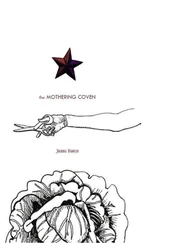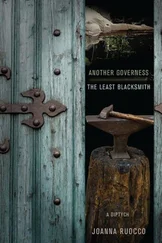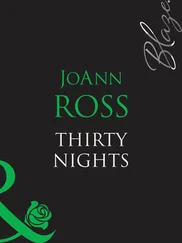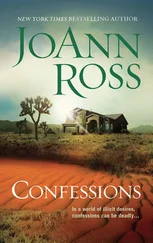“Me dear, darling, Saint Molly.” His brogue could have fooled any of Molly’s ancestors back in County Cork. “A keenly educated Catholic girl such as yourself should know that Saint Augustine is required reading in any seminary.”
“Actually, I was thinking more of Saint Augustine’s message telling us that we must take responsibility for our salvation, and our lives, than winning today’s contest. If you’re not careful, you’re going to end up in the hospital.”
Beneath his filthy Raiders jacket he shrugged shoulders that reminded her of a wire hanger. “It won’t be the first time.”
“No. But it could be the last.” She put her hand on his sleeve. “I worry about you, Thomas.”
His smile was sad. “You worry about everyone. When are you going to realize, Saint Molly, that no matter what Saint Augustine told us, you can’t save the world?”
“I’ll pray for you, Thomas.” It was what she always said.
“Save your prayers.” It was what he always said. “I’m beyond redemption.”
Molly sighed as he walked away. Then continued on.
Mercy Samaritan Hospital sprawled over a no-man’s land in the shadow of the Harbor Freeway and Santa Monica Freeway interchange like a huge gray stone Goliath. The neighborhood where Molly spent her nights was home to some of the roughest bars, seediest transients and oldest whores in the City of Angels.
Thanks to gang members’ propensity for shooting out streetlights, once the sun went down, the streets and alleys were as dark as tombs. To the residents of these mean streets, the gilt excess of Beverly Hills and the sparkling sun-drenched beaches of Malibu might as well have belonged to another planet.
Mercy Sam, a teaching hospital established by the Sisters of Mercy nearly a century ago, had been more than a place of healing; it had been a living symbol of hope and compassion. Hope had long since fled, along with most of the population of the inner city. Fortunately, although Molly was the only Sister of Mercy still on staff, compassion had remained.
A visual affront to Frank Lloyd Wright’s famed concept of organic architecture, the building featured a hulking main building with two wings. Various outbuildings had cropped up over the years like weeds.
The pneumatic doors opened with a hiss as Molly entered the emergency department beneath the bright red neon sign. The triage area was nearly deserted, as were the fast-track cubicles, where patients with level-one complaints—bloody noses, scrapes and bruises, migraines, intestinal upsets, minor burns and strep throats—were treated.
She went into the staff lounge, changed into the cranberry red scrubs that had recently replaced the hated pink ones and joined the other nurses in The Pit, as the ER was routinely called.
“Merry Christmas,” Yolanda Brown greeted her.
“Happy holidays to you, too.” Nothing in Molly’s voice revealed her painful memories of Christmas Eve. “I’m sorry I’m late.”
“It’s getting tougher and tougher to run that gauntlet,” Yolanda said with a frown. “Nobody rides the bus in L.A. Especially not at night and in this neighborhood. You really ought to get yourself a car.”
Molly smiled, feeling the shadows drift away as her equilibrium returned. “Why don’t you write a letter to the Pope and suggest he cosign a loan?”
Yolanda’s shrug suggested she’d expected that answer to the ongoing argument, but intended to keep on trying, anyway. “You didn’t miss anything,” she said. “It’s turning out to be a blessedly silent night. According to Banning’s report, it was pretty quiet on the day shift, too. Which is pretty amazing, given that not only is it a holiday, it’s a full moon.
“They had only half a dozen patients during their last three hours,” Yolanda continued. “The last one was some guy who sliced his finger to the bone trying to put together a bicycle for his eight-year-old son. He was stitched up, given a tetanus shot, advised to pay the ten bucks to have the store do it next time and was leaving just as I was coming on duty.
“By the way,” she tacked on as an afterthought, “the baby Jesus is gone.”
“I noticed as I walked by the crèche.” Molly sighed. “I suppose it isn’t surprising. Putting a baby doll outside in this neighborhood is just asking to have it stolen, especially this time of year.”
Molly was of two minds about the theft. She found the act wrong, but she couldn’t help envisioning the joy on the face of whatever child received the doll on Christmas morning.
“Santa’s gonna be paying a surprise visit to some kid’s house,” Yolanda said. “Apparently from now on, the swaddled babe is going to be a bunch of rolled-up towels. The visual impact won’t be the same, but administration has decided it might last through the night.”
Molly wasn’t so certain about that, since clean towels were even more precious than baby dolls around there.
It was almost eerily quiet. There were no metal-bound triage charts in the racks, crisp white sheets covered the high-wheeled gurneys lined up in the hallway outside trauma area A and all the booths were empty, curtains pulled back in anticipation of patients. Molly was Irish enough to be vaguely superstitious of such calm.
“Where’s Reece?” Molly asked.
“Your handsome young brother-in-law is hiding away in waiting room A. Seems he’s got a hundred bucks’ bet with Dr. Bernstein on the Houston Rockets over the Bulls—it’s the third quarter, Jordan’s on a roll and he’s starting to get nervous that his bride is going to murder him when she finds out.”
“Lena would never murder Reece. She adores him.”
And rightfully so, Molly thought. Dr. Reece Longworth, Mercy Sam’s ER resident, was the nicest man she’d ever met. He was also her best friend.
“And he’s nuts about her. The guy lights up from the inside like a Christmas tree whenever she’s around.” Yolanda sighed. “If I could ever find me a man who looked at me the way Reece looks at your little sister, I’d marry him in a heartbeat.”
“Lena’s lucky,” Molly agreed. Lena had met Reece one night two years ago when she’d shown up unexpectedly to eat dinner with Molly in the cafeteria. Instantly smitten, Reece had proposed within the week. It had taken him six months to convince Lena to marry him.
Until Reece, Lena’s choices in men had been disastrous, eerily similar to their own mother’s. All of her lovers—and there had been many—had been carbon copies of their abusive, alcoholic father. Molly often thought that Lena hadn’t believed she was deserving of love, even though she’d been ravenous for it all her life. During those bad years, Lena had reminded Molly of a bottomless, fragile porcelain bowl—impossible to fill and capable of shattering at a touch.
Molly sat staring at the lights of the small artificial tree atop a filing cabinet at the nurses’ station thinking that Lena’s first Christmas Eve with Reece had probably been the only truly happy one she’d ever had. The lights blinked red, green and white, flashing gaily on yellowed and cracked plaster walls in the unnaturally quiet room.
Normally, Molly would never have questioned the rare peace. Emergencies came in spurts. But she could never remember it being as quiet as this.
“You know, this really is starting to get a little spooky,” she said thirty minutes later as she bit into a bell-shaped cookie covered with red sugar sprinkles. “So where are all the customers?”
She’d no sooner spoken than the dam broke—a drive-by shooting; an attempted suicide who’d washed a bottle of nitroglycerin tablets down with a fifth of Beefeaters gin, then burned the inside of his mouth trying to blow himself up with a Bic lighter; and a cop carrying a newspaper-wrapped bundle.
Читать дальше












